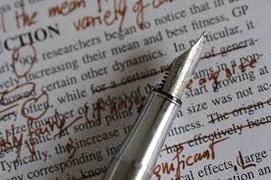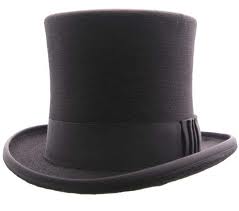Goodreads Book Giveaway
The City of Earthly Desire
by Francis Berger
Giveaway ends November 12, 2013.
See the giveaway details at Goodreads.
|
One copy of The City of Earthly Desire available in giveaway on Goodreads until November 12. Enter today! Goodreads Book GiveawayThe City of Earthly Desireby Francis BergerGiveaway ends November 12, 2013. See the giveaway details at Goodreads.
0 Comments
 Every writer strives for recognition and praise. This holds especially true for independent authors who are embroiled in the constant and seemingly futile goal of making the reading public aware of their work. Getting your work out into the market is easy; getting the market to your work is extremely difficult. This is not a lament, merely a statement of fact. Despite efforts to make their work known, most independent authors - yours truly among them - are mired in obscurity. We put our work out into the world knowing full well that the world might not ever care about it. It's a risk we all take. If nothing else, we console ourselves with the notion that at least we are trying. But these noble sentiments can ring hollow and false when you are seemingly sinking into oblivion. But every now and then, after months of silence and darkness, a thin, shining sliver of praise and recognition slices through the murk. You come to the realization that there do exist people who are aware of your work. Moments like that strengthen a writer's faith. I recently experienced a sliver of praise and recognition quite accidentally while searching the internet for a blog interview I had participated in nearly a year ago. As I searched, I came across another blog featuring the author R.L. Cherry who is promoting his own work online. I read the interview and was both surprised and delighted to see that Cherry had not only mentioned my novel, but had also said kind words about it. You can read the interview here: http://robinmartinezrice.com/interview-rl-cherry/ I contacted Ron (Cherry's first name) to thank him for the mention. He replied and graciously informed me that The City of Earthly Desire was one of the best books he had read in years. The sliver of praise felt more and more like a ray of sunshine after I read those words. Recognition from readers is valuable, but recognition from a fellow writer is truly something to treasure. What made it even more meaningful for me was that I had no connection to Ron before I read his interview. He wasn't a friend lending support, or a book blogger filling their blog. In fact, he had no personal reason at all to mention my book, but chose to do so simply because he had enjoyed it. I can't help but feel honored. Discovering R.L. Cherry's work is now high on my list of priorities. He cites Doyle, Chandler, and Hammet as influences, but also seems to have a passion for Twain and Hemingway. Sounds like my kind of writer! His novel Foul Shot has received great reviews on Amazon and Goodreads and through Kirkus: Christmas Cracker has also received many five star reviews and is also available for purchase.
I hope to return the favor and shine a little light of praise and recognition on Ron's work in the very near future! I invite you to do the same! To read more about R.L. Cherry and to discover his writing please visit: http://www.rlcherry.com Though I have not been on the receiving end of any such criticism myself, I am intrigued by the constant criticism self-published writers get from some readers concerning the quality of editing in some self-published works. Some readers are very quick to suggest the author should have hired a professional to proofread the novel before putting it on the market. This is good and, for the most part I believe, well-intentioned advice. Nevertheless, it comes off sounding a little flippant at times. Why don't most self-published authors hire professional editors? I don't care for the expression, but I would say the answer to this is one a classic no brainer. Money.
Money is the main reason why most self-published writers do not hire professional editors and proofreaders. Ninety percent of self-published books have sales of less than one hundred copies in their first year of release - this does not make the hiring of a professional editor a very cost effective option for most self-published authors. To illustrate this point, let's create a hypothetical self-published author and call her Bertha Hack. Bertha has sold 50 print copies of her 75,000 word novel Vampire Loins on Fire for which she has received a royalty of $4.00 per copy. Her ebook sales are considerably better. It has sold 100 copies and Bertha has received $1.00 for each copy sold. So Bertha's total royalties for her debut novel is a whopping $300. Now, let's turn to what most editors and proofreaders charge. Amazon's Createspace offers a basic copyediting service for what is considered a very reasonable price. Send your manuscript to Createspace and an editor will check over the manuscript for basic grammar, spelling, and punctuation mistakes. For this service Createspace charges $160.00 for up to 10,000 words or .016 cents per word for anything over 10,000 words. Since Bertha Hack's novel clocks in at 75,000 words, her editing job will set her back $1200. So, if Bertha had submitted her work to a professional editor, she would still be $900 in the hole for Vampire Loins on Fire. A high price to pay just to appease a few readers who are error-sensitive. Now some might argue that Bertha would have sold far more books if she had hired a pro edit it, but this is pure conjecture. In fact, I think it's utter horseshit. There are too many terribly written and terribly edited self-published bestsellers out there that prove that the quality of editing has very little to do with sales most of the time. As for me, I plug away at proofreading bit by bit on my own because I cannot at this stage in the game afford to pay for professional editing. My book, The City of Earthly Desire comes in at 230,000 words. Using the Createspace service as a gauge, it would cost me about $3400 to have the text professionally edited. I care about the quality of my work, but I also like to eat and buy my kid diapers. The good thing about self-publishing and print-on-demand is you can make changes to the text at any time and as many times as you want. I have uploaded two proofread versions of my novel The City of Earthly Desire since its release a year ago. Each version is a little bit better than the one before. I'm hoping this next one I will complete in a week or two will be almost perfect. And even if it isn't, I think I'll be able to digest a criticism or two concerning editing, were they ever to come my way.  Self-published books are often stigmatized because they lack quality in editing and proofreading when compared to traditionally published books. It is a valid criticism. There is no denying that self-published books, be they fiction or non-fiction are, more often than not, littered with grammatical errors, questionable punctuation, missing words, extra words, misused words, misspelled words, and a good helping of typos to boot. Having said this, I wonder how it could be otherwise. Comparing a self-published book to a traditionally published book is about as fair as comparing an independently-produced, small-budget film to a major Hollywood blockbuster. Both can be well-scripted, well-acted, and well-directed. In fact, the independent film could be more interesting or engaging on many levels, but in terms final product, the Hollywood film, regardless of how asinine its premise, will ultimately be more polished than the indie film.The reasons for this are obvious and I don't think I need to go into them - essentially, it all comes down to money and people. Returning to the subject of books, traditional publishers employ a small army of proofreaders, editorial assistants, fact-checkers, and editors who pour over a manuscript as many as a dozen times to ensure all the i's are dotted and the t's are crossed, whereas most independent authors are the sole editors and proofreaders of their own manuscripts. At best, an indie author might have a small circle of writer-friends and beta-readers who might enjoy locating and eliminating textual anomalies. Regardless, it's plain to see that in terms of proofreading firepower, the self-published writer is utterly outgunned by traditional publishers. Let's take it as a given then that the self-published book will not be as polished as the traditionally published book. Does that necessarily make the self-published book an inferior reading experience? If the text is absolutely saturated with outlandish errors of every kind, so saturated that it is often difficult to discern what the writer is trying to communicate, then I would have to say yes; however, I have seen many novels that suffer from the affliction described above go on to garner positive reviews and respectable sales. In some instances, horribly edited books have even become bestsellers. On the flip side, I have seen readers complain about self-published books that may have had two or three spelling mistakes, but were otherwise error-free. In the end it might come down to an individual reader's error breaking-point. Some readers are able to tolerate many errors; others, none. It is interesting to note that readers of the most popular genres - romance, erotica, paranormal romance, young adult, etc., - tend to be the most forgiving when it comes to poor proofreading, while those geared more toward general, historical, or literary fiction tend to be the least forgiving. I won't go into the reasons why - all-in-all, I think it's fairly obvious. Concerning my own novel, I owe a debt of gratitude to the small group of people who have read it thus far. They have been extremely gracious and forgiving about the typos and errors the text contains. I've proofread the novel twice since uploading it to Amazon a year ago. The first version of the novel was infected with errors. Subsequent versions have been significantly better. I'm in the midst of one final proofread at the moment. Hopefully, it will be my last. I doubt I will catch every error in the novel, but I'm sure to catch most and I sincerely hope that the few errors that might remain won't test any future reader's breaking-point.  I receive far too many unsolicited telephone calls from people with distinctive South Asian accents trying to sell me duct-cleaning or other nonsense. Though I find the calls incredibly annoying, I'm usually polite with the person on the other end of the line as I decline whatever it is they are trying to talk me into purchasing. Yesterday I received a call from a pushy man who claimed I had won a vacation by filling out a form in Wal-Mart or Sears; I was anything but polite during that conversation. The "you-won-a-free-vacation" ploy is one of the oldest scams in the world of telephone solicitation - it inevitably ends with the winners of the "free" vacation having to dispense their credit card information for administration fees required to secure the non-existent vacation. You can guess what happens if you fork over your credit card number. I pictured this scam-artist swindling unsuspecting people out of their money and clenched my teeth as I listened to him prattle on. Ethical considerations aside, there was a quality of arrogance in the man's voice that caused my blood to boil as he blatantly lied to me over the phone. Quite uncharacteristically, I began to shout a string of rather worn profanities into the phone calling the man, among other things, a parasite, scumbag, and piece of human excrement. I was seething after I ended the call. It was only then that I remembered my eleven-year-old niece and twenty-two- month-old son were sitting in the kitchen with me. Feeling thoroughly ashamed, I muttered a vague apology and tried to justify the rage I had unleashed, but there was no excusing what I had done. The incident bothered me for the greater part of the day. Why did I lose it like that? I tried convincing myself it was moral indignation, but I knew that was no explanation. After a few hours of picking away at it, I came to a realization - the outburst had nothing to do with the phone call but was the symptom of a much larger ontological problem I have been wrestling with semi-consciously for the better part of the past year. Once this dawned on me, I could not help but remember the opening paragraph of Herman Melville's Moby Dick in which the protagonist Ismael reveals the real reason why he chooses to go to sea: "Whenever I find myself growing grim about the mouth; whenever it is a damp, drizzly November in my soul; whenever I find myself involuntarily pausing before coffin warehouses, and bringing up the rear of every funeral I meet; and especially whenever my hypos get such an upper hand of me, that it requires a strong moral principle to prevent me from deliberately stepping into the street, and methodically knocking people's hats off--then, I account it high time to get to sea as soon as I can. This is my substitute for pistol and ball." Like Ismael, I'm experiencing a damp, drizzly November of the soul and I often feel stepping into the streets and knocking hats off heads. Unlike Ismael, going to sea will not cure the affliction and, regardless of how damp and drizzly it gets in my soul, I have never felt the urge to reach for the pistol and ball. Nonetheless, I do realize that I require some significant changes in the near future and it is high time I start working on them as soon as I can before hats go-a-flying. |
Blog and Comments
Blog posts tend to be spontaneous, unpolished, first draft entries ranging from the insightful and periodically profound to the poorly-argued and occasionally disparaging. Comments are welcome but moderated. Please use your name or a pseudonym in comments. Emails welcome: f er en c ber g er (at) h otm ail (dot) co m Blogs/Sites I Read
Bruce Charlton's Notions Meeting the Masters From The Narrow Desert Synlogos ✞ Aggregator New World Island New World Island YouTube Steeple Tea Adam Piggott Fourth Gospel Blog The Orthosphere Junior Ganymede Trees and Triads nicholasberdyaev Archives
July 2024
|